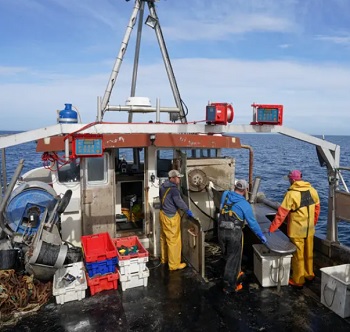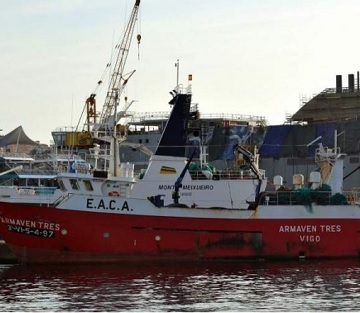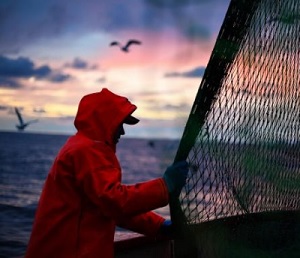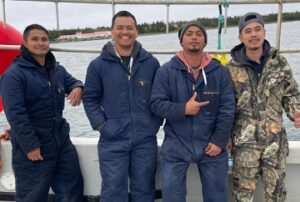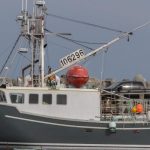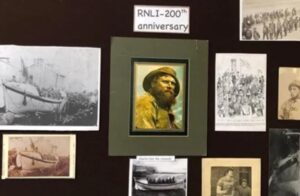Tag Archives: Common Fisheries Policy
Fishermen net benefits of being out of CFP as new figures show Scots vessels account for 96% of all landings
 Fishermen are continuing to net the benefits of being out of the Common Fisheries Policy (CFP) after new figures show Scots vessels accounted for 96% of all landings into Scotland last year. The statistics for 2023, published by the Scottish Government for the first time, show vessels based in Scotland accounted for 43,717 landings across the year. The figures come after Peterhead Port set a new record for annual fish landings, with £226 million-worth of catches traded across the quaysides this year. more, >>click to read<< 08:52
Fishermen are continuing to net the benefits of being out of the Common Fisheries Policy (CFP) after new figures show Scots vessels accounted for 96% of all landings into Scotland last year. The statistics for 2023, published by the Scottish Government for the first time, show vessels based in Scotland accounted for 43,717 landings across the year. The figures come after Peterhead Port set a new record for annual fish landings, with £226 million-worth of catches traded across the quaysides this year. more, >>click to read<< 08:52
Irish MEP Calls for “Use It, or Lose It” Principle for EU Fishing Regulations
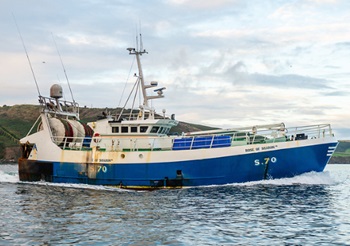 Following the announcement by EU Fisheries Commissioner Virginijus Sinkevičius that he has ordered a “full evaluation” of the Common Fisheries Policy and reports that 43,000 tonnes of fish were uncaught by Member States, other than Ireland, European fishing regulations under the CFP should have a “Use It, or Lose It” principle according to MEP, Billy Kelleher, whose constituency includes coastal communities in Munster and South Leinster. . more, >>click to read<< 06:52
Following the announcement by EU Fisheries Commissioner Virginijus Sinkevičius that he has ordered a “full evaluation” of the Common Fisheries Policy and reports that 43,000 tonnes of fish were uncaught by Member States, other than Ireland, European fishing regulations under the CFP should have a “Use It, or Lose It” principle according to MEP, Billy Kelleher, whose constituency includes coastal communities in Munster and South Leinster. . more, >>click to read<< 06:52
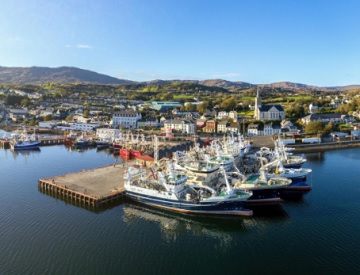
CEO says over regulation has led to the demise of the fishing industry
The fishing industry is facing the gravest challenges of our time with a decline in the number of young people joining the industry and a serious decline in profits reaped from the the processing and exporting sector, according to the Chief Executive Officer of the Irish Fish Processors and Exporters Association (IFPEA), Brendan Byrne. The Creenveen-based CEO said: “There is no doubt that we are facing the gravest challenges of our time as a result of Brexit and the TCA agreement. I suppose historically we have been treated very unfairly by the Common Fisheries Policy – they only allow us to catch, on average, 15% of all the fish in Irish waters; the other 85% is shared among other EU countries.” >click to read< 15:14

Ireland: Future of fish industry is very ‘bleak’ – ‘We ask for no more than equal rights,,,
The future of the fishing industry remains very bleak, with scientific advice not matching the reality of what fishers are witnessing, an abundance of fish in our Irish fishing grounds. That’s according to Patrick Murphy, head of the Irish South and West Fish Producers’ Organisation. Mr Murphy said there was ‘clear evidence’ showing many stocks in our zone could allow for far higher catches and sustainable quotas for Irish fishers ‘many of whom will be forced to leave the industry if the Common Fisheries Policy remains in favour of our visiting fleets.’ ‘We ask for no more than equal rights and equal opportunities for Irish fishermen in Irish waters,’,,, >click to read< 07:13
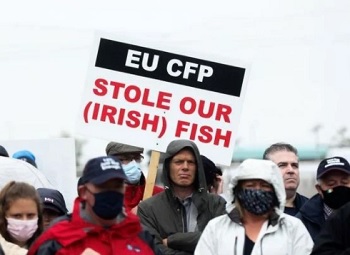
Ireland’s fishermen and farmers fight the Brexit fallout
Ireland’s fishermen and farmers took to Dublin to protest what they feel are unfair regulations. They are not happy with the Irish government either, which they say is failing to stand up for them. The issues involved for our fishermen and farmers are different, of course, but they go back to the same roots, as we will explain in a moment. First the fishermen. In the middle of last week, a huge flotilla of fishing boats sailed up the Liffey,,, It was the most picturesque protest we have seen here in a long time. >click to read< 18:12
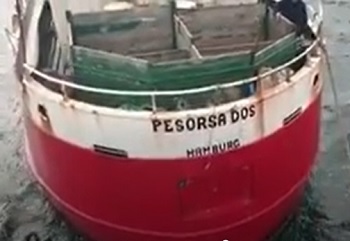
Frustration as F/V Pesorsa Dos returns to local fishing grounds
Local fishermen are up in arms after the German registered gill-netter F/V Pesorsa Dos reappeared in the waters to the west of Shetland. Last year, the Spanish owned vessel was in the centre of a huge controversy after the crew of the Alison Kay (LK57) posted a video that appeared to show the gill netter trying to foul the local trawler’s propeller. Following Brexit and the “hugely disappointing” trade deal, the UK has become an independent coastal state, but EU vessels continue to have full access to UK waters until 2026. >click to read< 18:26
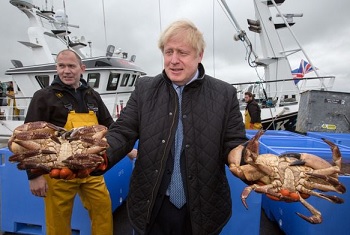
UK fishermen mock ‘laughable’ EU demand to extend Common Fisheries Policy for a year
In a statement this morning, Ms MacDonald made clear EU vessels landed 10 times more fish from UK waters than UK vessels do from theirs. It comes EU chief negotiator Michel Barnier stressed a trade deal between the UK and European Union was still possible Talks were extended on Sunday after Boris Johnson and European Commission president Ursula von der Leyen agreed to continue the process despite major differences still remaining. For months, the talks have been deadlocked on the issues of fishing rights which have plagued fishing chiefs as well as state aid and the level playing field. >click to read< 11:59
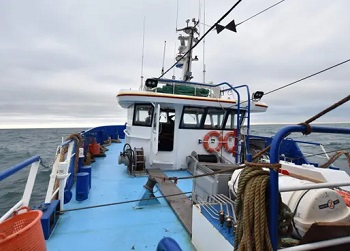
Catches, quotas and communities: the key fisheries issues at stake
Only a few hours after accession talks had begun on 30 June 1970, the UK government was told that a common fisheries policy had been agreed by the original six members of the community. It was a fait accompli. The UK had to hand over equal access to its waters and the catch quotas for each country were fixed on the basis of the recorded catches of the various national fleets between 1973 and 1978. It led to some very unpalatable outcomes, including those in the Channel, where the UK’s share of the cod quota stands at 9%, whereas France’s share is 84%. Today, EU fishing fleets catch 675,000 tonnes of fish in UK waters – 60% of the total caught in the UK sector. British fishermen catch just 88,000 tonnes, or 16% of the fish taken in EU waters. >click to read< 13:39
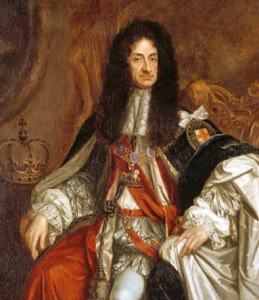
Brexit: Thank-you note from 1666 could save Flemish fisheries
The United Kingdom is due to leave the EU at the end of this year, and unless a deal can be agreed before then, all of the existing rules governing trade relations between the two sides fall away. Among the issues forming a barrier to agreement is fisheries. The UK is unwilling to give way on fisheries policy, and wants to exclude all foreign boats from British waters. That would be the death-blow for the Belgian fishing industry,,, But help could be at hand, in the form of a document signed and sealed by Charles II in 1666. >click to read< 15:18
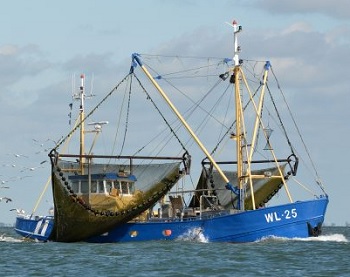
Fishing: The Great Betrayal
The Common Fisheries Policy began as a land (or rather, sea) grab, evolved into a stitch-up and grew into an environmentally devastating and commercially disastrous scandal. The EU, UK government and avaricious commercial interests are all to blame – and we’re far from being out of the woods yet. >click to read< 18:57

John Ashworth: Why most of the UK’s fish should be landed in the UK
When I watched the fishing debate televised from the House of Commons last Tuesday for the Second Reading of the Fisheries Bill, I was delighted to see many backbench MPs contributing and I was impressed by the level of knowledge shown, except the SNP Fisheries spokesperson who was out of her depth trying to defend the indefensible.,, You have to look back at the direction and progress over the last 30 or so years of campaigning to get out of the Common Fisheries Policy,, John Ashworth has worked all his life in the Fishing Industry, as a gear designer and manufacturer. He spent 20 years working on fishing vessels around the world, and promoted environmental issues, He led the Save Britain’s Fish campaign through the nineties and early twenties and is now part of Fishing for Leave. >click to read< 08:04
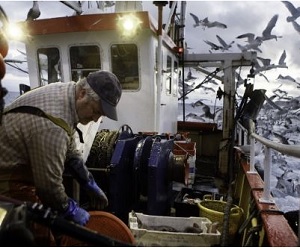
New penalty points system – Fishermen say there is no right to challenge the points for breaches of rules
The chief executive of Killybegs Fishermen’s Organisation, Séan O’Donoghue has said that fishermen are not being afforded the same rights as other citizens under the new penalty points system introduced at the weekend. Mr O’Donoghue said that the fishing industry was not opposed to the system of penalty points to target breaches of fisheries rules but they were concerned that there was no right to challenge the points.,, The reaction from the fishing industry all around the country had been huge, said Mr Donoghue. “We can’t understand how the Taoiseach signed this statutory instrument.” >click to read< 10:21
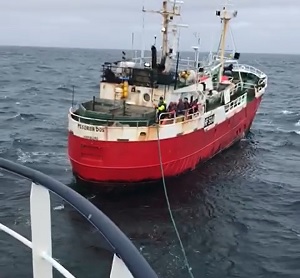
Spanish F/V Pesorsa Dos detained in Irish waters and escorted to Killybegs
The F/V Pesorsa Dos was detained by the Irish Naval Service for alleged breaches to fishing regulations in Irish waters around 25 miles off Malin Head on Friday. She arrived at Killybegs on Tuesday morning after it had taken a few days to recover all of her gear. The Spanish owned gill-netter stands accused of attempting to foul the propeller of the local trawler F/V Alison Kay at the end of June during a confrontation 30 miles to the west of Shetland. At the time fishermen shared a number of video clips showing the incident,,, >click to read< 15:50
With demands for an investigation, Skipper describes how local boats are pushed out of fishing grounds – >click to read<

With demands for an investigation, Skipper describes how local boats are pushed out of fishing grounds
James Anderson said the 27 metre long German-registered fishing boat Pesorsa Dos could have caused serious damage to the Alison Kay had she been successful in her alleged attempts of running a line through the Alison Kay’s propeller during an incident off the west coast of Shetland last week. Video footage of the confrontation was widely shared by fishermen on social media and picked up by a number of news organisations. The Maritime and Coastguard Agency has been informed. Politicians and fishermen’s organisations have called for an investigation to be conducted. >click to read< 08:12

Fishermen post shocking video footage of ‘intolerable’ behaviour
Fishermen have described the conduct of Spanish gill-netters to the northwest of Shetland as “intolerable” after video footage was posted on social media showing a Spanish gill-netter allegedly attempting to run a rope through the propeller of a local whitefish trawler. This latest video evidence takes the ongoing skirmishes over access to fishing grounds to a new level and highlights why the local fishing industry is so keen to leave the European Union, and with it the Common Fisheries Policy (CFP). The battle between Spanish gill-netters and local trawler men has been ongoing for a long time with most local whitefish boats reporting over the years that they have been at the receiving end of attempts to drive them out of their traditional fishing grounds. >Video, click to read< 14:46
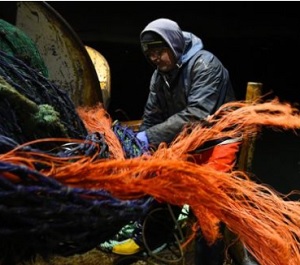
Battle lines being drawn over fishing rights
Fish have been served up among the main bones of contention between the UK government and the European Union. The negotiating mandate published on Thursday at Westminster is a long way from the vision for a future relationship for managing wild fish stocks in the European Commission’s proposals. That comes as no surprise to those who have seen the pre-negotiation posturing from the rhetoric of the 2016 Brexit campaign, to the priorities set out by Brussels along with the Withdrawal Agreement. >click to read< 23:13
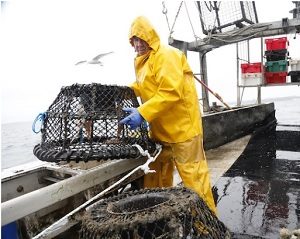
Will Brexit really bring victory for small scale fishermen or big business?
During the pre-referendum canvassing, Britain’s fishermen were held up by Leave advocates as an example of a ‘homegrown’ industry decimated by what they saw as ‘draconian’ EU regulations. Compliance with the EU’s Common Fisheries Policy, (that dictates that member states can’t control their own waters, nor set their own fishing quotas), was, they believed, the reason why. >click to read< 10:13
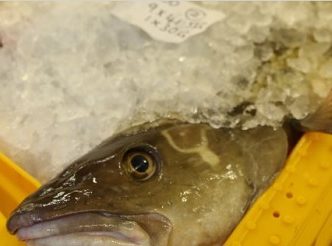
Leaving the CFP ‘more urgent’ than ever
Leaving the Common Fisheries Policy (CFP) is ‘more urgent now than ever’, according to an isles fishing representative. Simon Collins, head of Shetland Fishermen’s Association (SFA), has reacted strongly to the news that there will be a 50% cut in North Sea cod quotas next year. The agreement between Norway and the EU follows three rounds of fisheries talks in Brussels,,, >click to read< 13:09
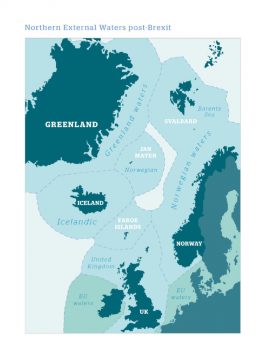
Clearing the fog on UK fishing
It should come as no surprise that the future of the U.K. fishing fleet will be one of the principal battlegrounds of the 2019 general election. Few industries resonate more with the emotions of the British public; and although on a macro-economic scale, fishing is not the force it once was, many coastal communities are still culturally and financially dependent on the vessels of all sizes that, among other things, provide our national dish — fish and chips. So, there will be no shortage of soundbites or promises of quick fixes from parliamentary hopefuls of all political colors. >click to read< 08:24
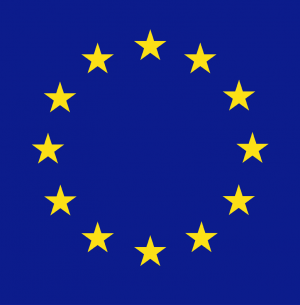
Why we must break free from the rotten EU fisheries system
The Common Fisheries Policy, a rigid political structure that works against nature.,,, To understand the significance of this research, it is important to understand how nets (trawls) are constructed.,,, Separator trawls were designed with a panel inserted horizontally throughout the trawl, with two cod-ends, one top section for haddock and one at the bottom for cod (Cod ends are the end of the trawl, where the catch ends up, and is emptied into where the catch is sorted.) The Canadians took this research further. They were concerned about their shrimp fishery,,, >click to read< 11:04
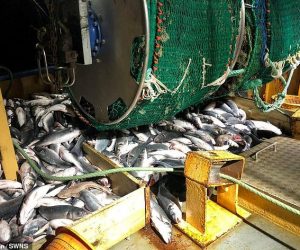
Wasteful Regulation: British fisherman throw two TONS of sea bass worth £20,000 back into the sea due to strict EU fishing quotas
This is the extraordinary moment a fisherman was forced to throw two tons of sea bass worth £20,000 back into the sea due to strict European Union fishing quotas. Joel Dunn, 32, recorded one of his crew plucking sea bass from the huge catch and hurling them one by one back into the waters after accidentally catching the fish as part of their haul. EU rules designed to protect sea bass from over-fishing mean catches with more than three per cent sea bass must be put back. >click to read<08:16
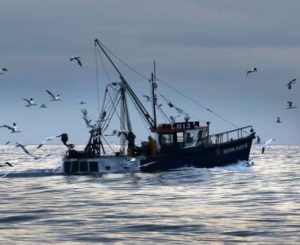
Brian Wilson: The scales must fall from our eyes
The Scottish fishing industry is in the hands of a wealthy few – but will Brexit, whatever form it takes, change anything, asks Brian Wilson Let’s be honest – the vast majority know little about the fishing industry while evincing general sympathy towards those who go to sea in order to put food upon our tables. When fishermen protest about the Common Fisheries Policy they tend to benefit from that empathy because it is easier to concur that “Brussels is to blame” than look for villains closer to home. >click to read<16:03
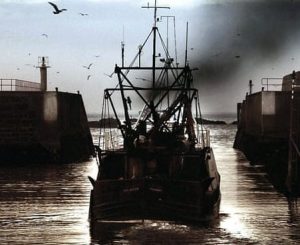
Fisheries bill: Changes would allow small vessels to spend more days at sea and land more catch
Fishing rights should be redrawn to give a higher quota to smaller vessels after Brexit, the Labour party is to propose in an amendment to the government’s fisheries bill. The changes would allow small boats to spend more days at sea and land more catch than they do at present, though catches would still be subject to negotiation with the EU on common fishing grounds. Under current allocations, two-thirds of the UK’s quota of fish under the EU’s common fisheries policy is controlled by three major multinational companies. >click to read<11:27
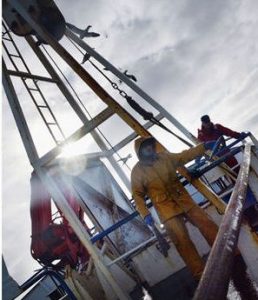
‘It’s a whiff of BETRAYAL!’ Fisherman FIRES back at threat to extend Brexit transition
Brexit supporting fishermen have fired back at calls for Britain to extend the post-Brexit transition period, with fishing boss Simon Collins branding plans tie the fishing industry to the European Union’s controversial Common Fisheries Policy (CFP) for even longer after Brexit as a “betrayal”. >click to read<09:52
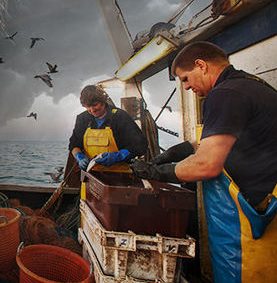
It’s official: EU IS forcing small fleet fishermen out of work with quotas, report says
Policies imposed by Brussels on British fishermen have hugely harmed traditional fishing operations, experts from the University of Kent said. In their paper, researchers from the Kent’s School of Anthropology and Conservation (SAC) stated the EU policies are favouring larger boats and richer owners. As a result, smaller fleets and individuals were pushed out of their livelihood. Professor Douglas MacMillan, one of the researchers taking part in the study, said the CFP focuses too much on fish stock conservation and has no meaningful policy regulations to ensure that quotas for over-fished stock such as tuna are equally shared amongst fishermen. >click to read<
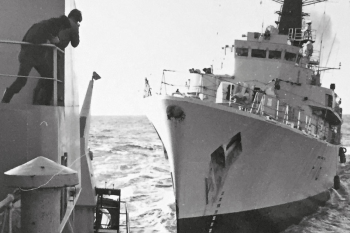
Everything you ever needed to know about fisheries
We are currently going through the most significant legislative reform of the past 40 years; exactly how this will impact fisheries is unclear. There may be much to gain but also… so much to lose. I am too young to remember the ‘cod wars’ between Iceland and the UK fishing fleet (1958-1976), however, throughout my time studying and working in fisheries and marine conservation these times have always struck a chord. They highlight to me the difficulties around managing fisheries and the ever present struggle that seems to exist between the social, economic and environmental issues of the industry. >click to read<19:36
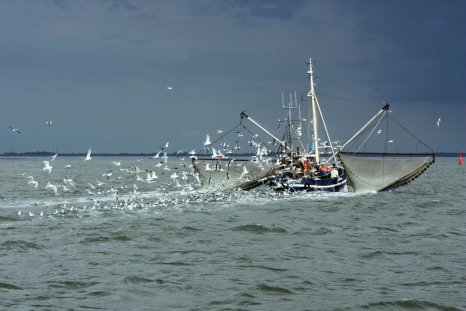
Where are the friends of fishing?
British fishing has long been neglected for two reasons. First Ted Heath sold it out by accepting the Common Fisheries Policy in his desperate desire to get into the Common Market.,, Second, fishing has strong emotional support but a weak political punch.,, Now when the country has voted to be free of the EU and fishing is one of the few powerful cards we have to play, we have the chance to redeem. Moreover the Common Fisheries Policy has so comprehensively failed,,, >click to read<20:17






